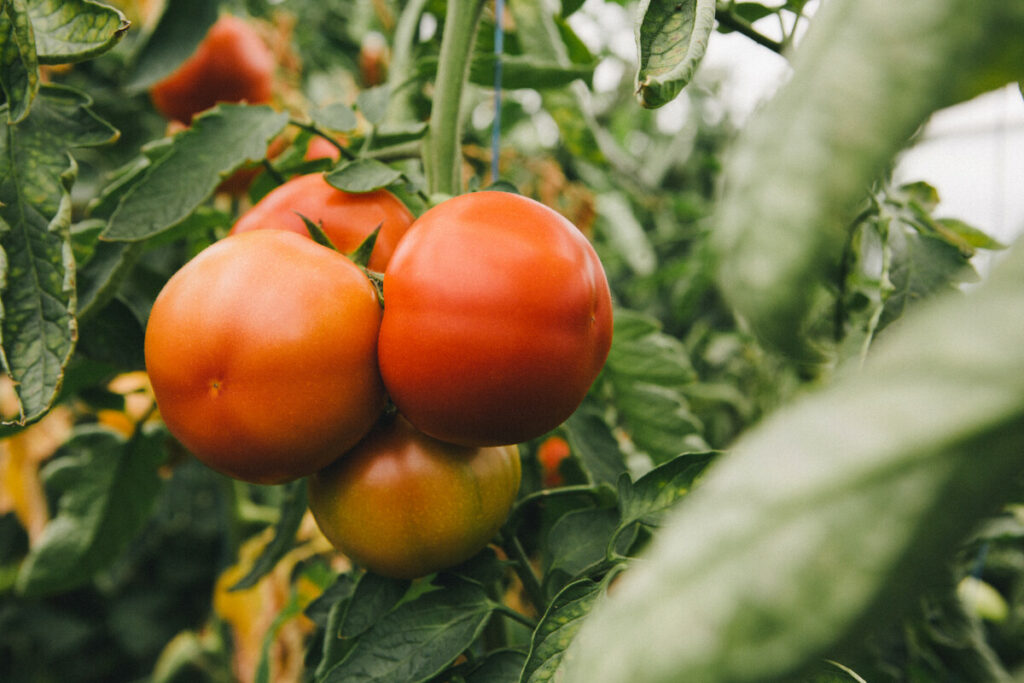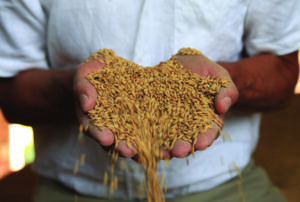#NoGMO
The Biodynamic Federation Demeter International stands for a GMO-free agriculture and strongly opposes the new generation of GMOs.
The Federation has always taken clear stand for a GMO-free agriculture by prohibiting any use of Genetically Modified Organisms (GMOs) in the Demeter Standard as it is not compatible with the principles of biodynamic farming. Indeed, the precautionary approach to all changes made in our genetic heritage and planetary biodiversity is of primary importance. It is essential to ensure free access to genetic resources and to preserve genetic diversity for the future generations.
The risks and threats inherent in GMOs are still relevant and high again on the political agenda with a new generation of GMOs, the so-called ‘new genetic engineering techniques’. These are currently debated in the European Union, but everywhere else their use is also being questioned. Often presented as a solution to tackle the current climate crisis impacting our farming systems, the agricultural biotech industry is pushing for their development.
The Federation, however, strongly advocates for food and farming free from GMOs and for a food system transformation preserving our environment and biodiversity rather than new technological tools based on empty promises. Biodynamic farming shows the way forward for a GM-free agriculture that benefits our planet with concrete solutions at hand.
New generation of GMOs
Since the first introduction of GMOs in the 1990s, a new generation of GMOs came to light over the last twenty years. These new GMOs, also called new genetic engineering techniques[1] include a wide variety of different technologies including CRISPR. Their aim is the same: To modify the genome of an organism by either introducing genetic material or enacting a change to the genetic material in the cell.
Unlike the older generation of GMOs, new GMOs do not necessarily introduce foreign genetic material, they can modify the genome by cutting, editing, or silencing strands of DNA from the same organism. Such techniques increase the range of possibilities and speed with which the genetic material of organisms may be modified
What are the risks and threats?
Despite the seemingly greater precision of NGTs, the risks and dangers remain. The process still involves potentially random events whose end results cannot be predicted as well as unforeseeable consequences for the repair mechanism of the cell.
Interactions between genes and other elements are incredibly complex, which means that any genetic engineering intervention in the genome can have unforeseeable and unintended
consequences. The potential environmental impact could be devastating for the environment and for existing wildlife. Therefore, it is crucial to strictly apply the precautionary principle to ensure that new GMOs and their products undergo safety checks before entering the market.
Gene editing can cause large deletions, insertions, and rearrangements in DNA, which can affect the function of multiple genes.
Dr. Michael Antoniou
More
For a GMO-free agriculture
With the pending climate crisis and increasing biodiversity loss our agriculture systems are under a lot of pressure. The agriculture biotech industry sees in these new techniques a powerful tool to address these challenges disregarding the threats and risks inherent in GMOs.
The Federation sees a real danger in these new GMOs. Not only because they represent a threat to human health and to our environment but also because they are so invasive that one cannot guarantee the production of seeds and food that are free from GMOs in the long run. Such drastic consequences would be especially problematic when it comes to organic and biodynamic farming.[2]
Currently, the European Union debates about a potential deregulation of new GMOs. Up to now, all new GMOs and their products fall within the scope of the current GMO legislation according to a Ruling of the European Court of Justice in 2018 which upholds the precautionary principle. A deregulation would therefore imply no prior risk assessment, traceability, and clear labelling of new GMOs and their products before being placed on the market.
The Federation urges the European institutions to take a clear stand and ensure that all organisms derived from both old and new GMOs continue to be regulated in accordance with the existing European GMO standards meaning that all GM food must be risk-assessed, traceable and labelled before entering the market. Farmers and consumers have the right to choose what they plant and eat. This is essential not only to respect the high standards of biodynamic production but also to preserve the integrity of our resources, health, and environment. The Federation calls on all governments to propose a structural change of the agri-food system and push for sustainable, fair, and social farming models.
[1] https://www.ifoam.bio/genetic-engineering-and-genetically-modified-organisms
[2] https://www.ifoam.bio/sites/default/files/2020-03/position_genetic_engineering_and_gmos.pdf



